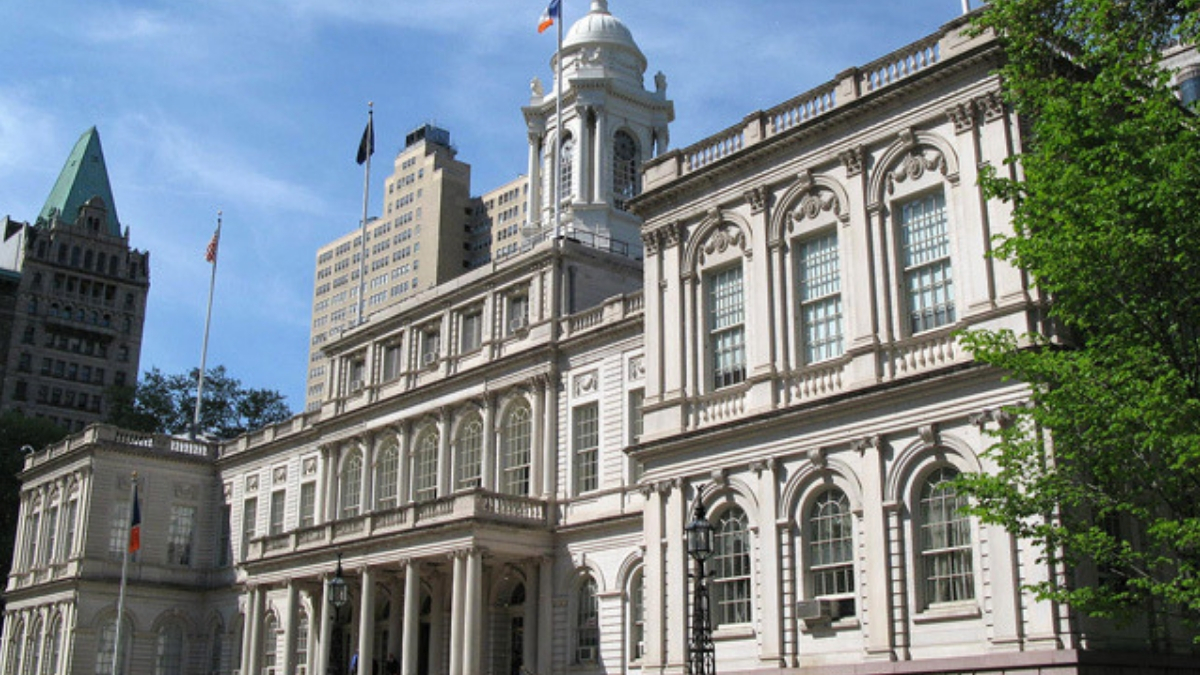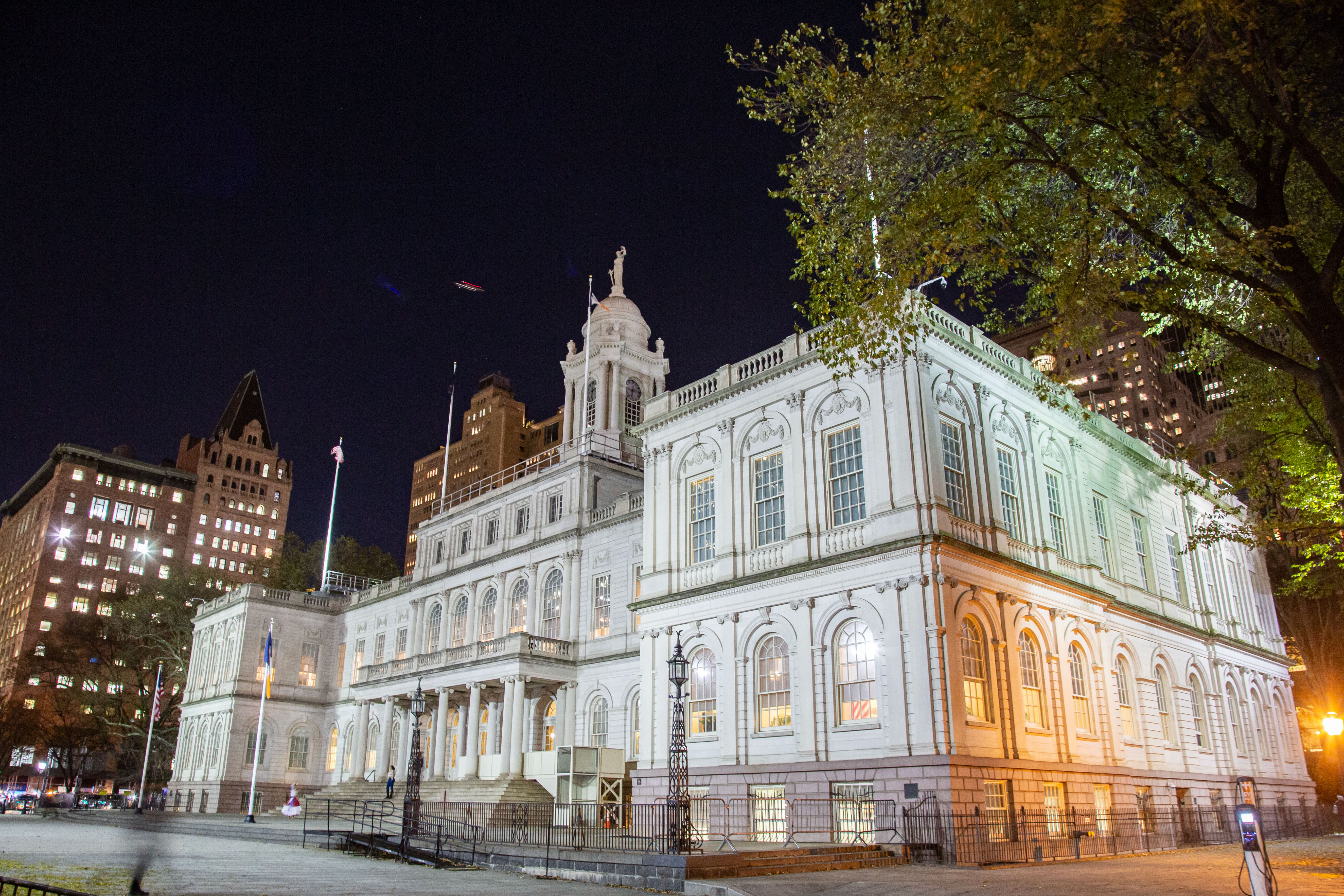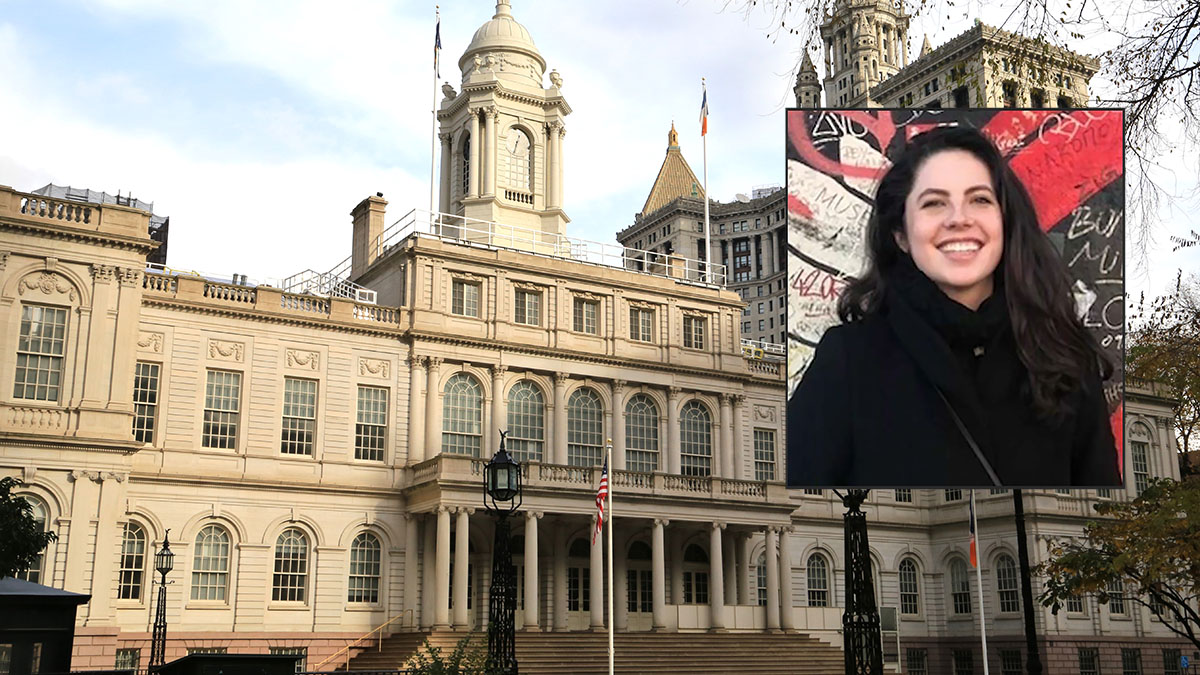Mayor Eric Adams for weeks has promised to give shelter and support to every migrant family being bused to NYC from Texas — but the I-Team has learned some families seeking asylum are being told they’re not eligible. NBC New York’s Melissa Russo reports.
What to Know
- Migrant families seeking aid from NYC’s shelter system say they’re being asked to turn over paperwork that in many cases no longer exists
- The city’s shelter system, already under strain from staffing problems and soaring eviction rates, is now coping with hundreds of migrants coming from Texas every week
- The city admitted Thursday that there were two nights families had to sleep on the floor of the PATH intake office in the Bronx, rather than just the one night they had previously acknowledged. They also said five families were impacted in those two nights, instead of four, the number the city stated in the past
New York City says it is prepared to welcome asylum seekers with open arms — but for at least some families, the city will only shelter them if they can produce carefully itemized paperwork after a treacherous and often deadly journey thousands of miles long through deserts and jungles.
For people fleeing here in search of a better life, the depths of the bureaucracy can be hard to comprehend, but the recording of a phone call obtained by News 4 lays bare just how difficult the situation has become.
Watch NBC 4 free wherever you are
In a six-minute conversation, a city social worker told a pregnant asylum seeker that she wasn't eligible for shelter — but the social worker couldn't tell her why, because the case paperwork didn't list a reason. So, that city worker told the woman she had to go to the PATH shelter intake center and ask them herself. Once she figured it all out, the social worker said, this pregnant asylee then had to gather whatever extra paperwork was needed and bring it to the social worker by 4 p.m. to remain eligible to stay in a shelter.

Get Tri-state area news delivered to your inbox with NBC New York's News Headlines newsletter.
Catholic Charities has previously said it documented multiple cases where asylum seekers came to the border in Texas with paperwork, only to have all of it seized. The Legal Aid Society, for its part, told News 4 it has handled multiple cases where people were told they needed to provide paperwork they didn't have from countries they had to flee.
News 4 obtained copies of the papers given to one family, saying they were ineligible since they did not provide a "complete, accurate and verifiable" two-year housing history. (As Legal Aid explains on their website, it is the city's standard operating procedure to require families to provide such a history when seeking shelter.)
The Department of Social Services, for its part, has repeatedly insisted it was doing everything it could to meet the needs of the hundreds of migrants coming to, or being sent to, the city on a regular basis. In a statement Thursday evening, a spokesperson for DSS said that the department has been "responding to the unforeseen need for shelter services at an extraordinary speed while equipping our teams with additional resources such as Spanish-speaking interpreters and providing comprehensive guidance to best support and address the unique circumstances of recently-arrived asylum seekers in need of shelter."
While the spokesperson did not address why asylum seekers were being asked to provide paperwork they did not have from their home countries, a DSS official said the department is looking into changing the intake process in order to specifically cater to asylum seekers.
The DSS — which previously acknowledged violating the law on July 18-19 and not placing four families in shelter by a legal deadline — also issued an earlier statement saying it had uncovered a fifth family that was not timely placed, and that there were two nights in which families were not placed, leaving them to sleep at the PATH intake office in the Bronx.
"We remain committed to meeting our moral and legal obligation to providing shelter services to all who need it, regardless of immigration status, as well as being transparent when we have not met this obligation as this process continues. We are proud of the incredible work our dedicated teams and frontline staff continue to do despite extraordinary challenges to make sure that we are connecting vulnerable individuals to shelter services," a spokeswoman said.
In response to the additional violation of policy regarding placing families, Legal Aid said they are "concerned that this Administration has failed to provide us with a plan for how they will increase shelter capacity." The group said that the vacancy rate in the shelter system was only .18 percent as of Wednesday, and has been below one percent since June 3.
"Without increasing the vacancy rate, there is a risk the City will run out of available beds and we will see further violations," a statement from Legal Aid read.
Shelter Crisis: The Latest
"Open Arms"
The bureaucratic nightmare is testing Mayor Eric Adams' professed openness to the migrants coming to the city — either voluntarily or because the state of Texas has bussed them here.
"New York is a city of immigrants, and we will always welcome newcomers with open arms," Adams said on Aug. 1. In fact, he's used that "open arms" line in statements and press releases at least three times in the last month.
But as the saying goes, the devil is in the details. PATH, the city’s shelter intake center in the Bronx, typically asks those coming in for shelter to provide certain kinds of records, like where they’ve lived for the past two years, who their landlords were, and so on. It’s an effort to ensure that clients really do need shelter, and cannot return to where they were living before.
For a New York City resident fallen on hard times, that may still be a meetable burden. But for someone who’s walked from Venezuela to the United States to flee an oppressive regime, such paperwork may be little more than a fantasy.
And yet, PATH is still demanding exactly that paperwork. Not just from the pregnant woman in the phone call, but from at least two other families as well.
News 4 has chronicled the story of the Urbaez family, who made it from Venezuela to Texas, only to be given paperwork by federal authorities that directed them to the wrong place in New York City.
Left without shelter, they say they ended up homeless for days, sleeping in a Good Samaritan’s car at one point. Finally, they made it to PATH at 151 E. 151st in the Bronx, in order to get proper shelter.
But they said PATH wants two years of their housing records, and what little paperwork the family had was seized at the border. With no papers, and no readily available way to get new ones, the family is now caught in a bureaucratic loop.
PATH placed them conditionally for 10 days, then notified them they're not eligible for shelter because they haven't provided the requisite paperwork, forcing them to return to PATH and wait all day long to explain their situation and get another 10-day placement (the Urbaez family provided copies of their paperwork to News 4 to illustrate their concerns). According to Anabel Urbaez, this same routine has already happened three times now.
Attorneys at the Legal Aid Society, which represents families in shelter, say the city is violating their own policy for asylees established in 2017, noting that efforts to contact the home country to verify residence did not make sense and could put families fleeing persecution in danger.
"The workers are either not trained or they're not following the policy," said Kathryn Kliff, an attorney with Legal Aid. "It's really frustrating that they're not following their own policies...we continue to raise this as a problem."
An officials with DSS said that, in accordance with department policy, all families go through an eligibility review process, and that those found ineligible can reapply.
The same sort of paperwork morass happened to the Mayora family, also asylum seekers now in New York and wending their way through the city's social services system.
Luisandra Mayora says that on Aug. 16, she was given 24 hours to leave a shelter because she did not make a required call for a 9 a.m. appointment -- except she says she wasn't even given the paperwork with the number to call until 2:30 pm. And not only that, Mayora said, but the paperwork was in English and she only speaks Spanish.
That left her in tears, unsure what to do next, all while trying to care for a child who was sick with a fever.
"This is not my fault. I told the social workers that it was not our fault. That it was their fault. Because over here there is no one that speaks Spanish, only people speaking English," Mayora said.
"Every day I am aware of all the paperwork that they put under our door. So in this case they never sent me any paperwork, nor did they put it under the door."
Legal Aid stepped in earlier this week and helped the Mayora family resolve their situation.
"No one should have to do that in New York City. We have a right to shelter, and this family was very clearly a migrant family with nowhere else to go. So just to inflict that kind of fear and pain and trauma is just kind of frustrating when it seems there are already ways to make this easier," Legal Aid's Kliff said.
While not addressing the Mayora family's specific case, a DSS official said that there are Spanish-speaking interpreters at PATH, and that the department not only provides services in the individual's preferred written and spoken language, it also offers translations of documents.
In simplest terms – the U.S. government says these families have a reasonable fear of persecution in Venezuela and can legally live in the United States for the time being, but the City of New York still wants them to prove they really, truly don’t have anywhere else to go.
DOI Probe
The city's Department of Investigation is now probing whether the Department of Social Services tried to cover up violations of law at PATH, including at least one night where people were kept at the facility hours after the legal deadline to place them in shelter.
The city has said DSS Commissioner Gary Jenkins, who's worked in the department for 30+ years, was not aware it was illegal for people to spend the night at PATH. City Hall has also denied a coverup, even as DSS fired its spokeswoman, who has alleged pressure in the department to conceal the failings at PATH.
"I don't like to go to PATH because I don't like the way they treat people," Anabel Urbaez told News 4 in an interview last Saturday. "I feel horrible every time I go to the PATH. I feel bad because every time I go there they treat you bad and I get scared of going back, and I'm afraid to end up on the street with my children."
Jenkins said in an interview with WCBS that the claim he intentionally covered up violations is a "false allegation," and that he had told Deputy Mayor Ann Williams-Isom "within an hour" the families were not placed by 4 a.m. — insisting they were only kept for a few hours longer.
"We unfortunately fell down and did not meet our legal mandate," Jenkins said in the interview.
The claim he was addressing comes after News 4 reported a DSS spokeswoman was fired after pushing back on efforts by department leadership to conceal legal violations in the shelter system. Email and text messages provided to the I-Team suggest that the Deputy Commissioner for Public Information Julia Savel had resisted efforts by Jenkins to conceal crowded conditions in the city's homeless shelter system from his superiors at City Hall, from the media and from the public.
But in addition to denying any sort of campaign to hide the information, Jenkins also denied that Savel was fired over the incident.
"There's documented instances where she was unprofessional with her peers, her subordinates and with senior management," Jenkins told WCBS. "It was not in the agency's best interest to keep her employed with the agency."
In response to those claims, Savel said in a statement Thursday that her performance "was never in question and I worked tirelessly" for the administration to help those in need.
"When I arrived at the PATH intake center with Gary Jenkins, and his Chief of Staff Karen St. Hilarie on the night of July 20th when multiple violations of right to shelter were made public, I was privy to all information being shared by my colleagues in senior leadership and my input was requested by both Gary and City Hall. The minute I refused to issue a false statement to the press stating the city was meeting the legal mandate — as directed by Gary — was the moment when I was excluded and the active cover up began," Savel said in a statement. "During the time I worked for the city, I held truth, transparency, and decency above all else until the day I was unjustly fired. I can’t say the same about Gary Jenkins."
Jennifer Vázquez contributed to this report.




